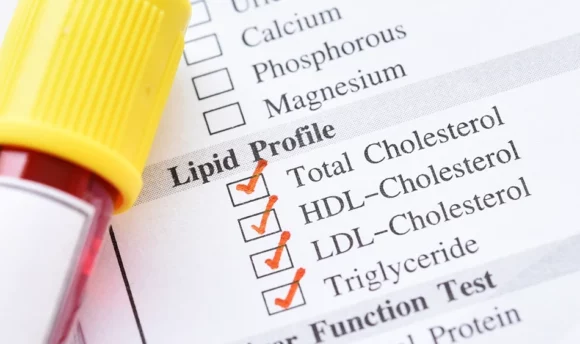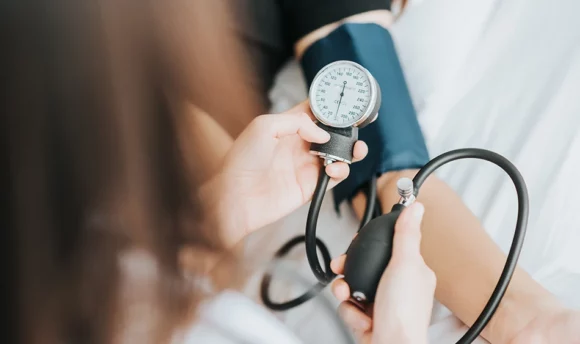Does Heart Rate Affect Blood Pressure? Doctor's Answer
Heart rate and blood pressure are two different measurements, but can the two rise and fall in sync with one another? Here we cover the relationship between heart rate and blood pressure and discuss normal and harmful blood pressure readings.

A trip to the doctor’s office often entails a blood pressure (BP) and heart rate reading. The process offers an insight into your heart’s performance to identify any potential issues with your heart health. Therefore, it provides an opportunity to identify your risk of cardiovascular disease.
Many associate the two measurements together, but they are distinctly different factors. As they both relate to the heart, you may wonder if one impacts the other. If you have an elevated heart rate, do you also have high blood pressure?
This article confirms whether heart rate affects blood pressure, what BP reading is considered normal, and what constitutes dangerous levels.
Does Heart Rate Affect Blood Pressure?
Blood pressure and heart rate do not always rise and fall at the same rate. Your heart rate can increase without influencing your blood pressure, and you may have high blood pressure without an increased heart rate. Sometimes, they may alter in response to one another.
However, this is generally in situations where heart rate is abnormally high or blood pressure is unusually low.
Blood pressure refers to the pressure of blood flowing against the artery walls, while heart rate is the number of times your heart beats in one minute. Your heart rate increases for reasons such as exercise (especially cardiovascular activity), stress, medications, and too much caffeine, among other factors.
Healthy blood vessels dilate with a rising heart rate to allow more blood flow. The dilation of the blood vessels works to stabilize BP levels.
Therefore, you can have a significantly higher heart rate and only experience a minor increase in your blood pressure. With low blood pressure, your heart may beat faster to sustain the usual blood flow to the heart and organs.
What Is a Normal Blood Pressure?
Normal blood pressure is the rate considered safe and healthy for most adults. The BP reading considered normal for most people is less than 120/80mmHg. You may have high or low blood pressure if it does not fall within this range.
A normal reading shows that your heart is functioning at a healthy level, and you are at a decreased risk of coronary heart disease, heart attack, and stroke.
What Do Blood Pressure Numbers Mean?
Measuring blood pressure provides you with two numbers. The first or upper number is the systolic pressure that records the force of blood in your arteries as your heart beats. The second or bottom number is the diastolic pressure, which shows the force of blood as your heart relaxes between beats.
The unit of measurement is millimeter(s) of mercury (mmHg). 120/80mmHg shows a systolic pressure of 120 and a diastolic pressure of 80.
What Is Considered a Dangerous Blood Pressure?
A blood pressure reading of 130/80mmHg and over is considered high blood pressure, also known as hypertension. Consistent higher blood pressure than normal can put your health in danger, increasing your risk of stroke, heart attacks, heart failure, and chronic kidney disease.
While the above reading poses a health threat, a systolic over 180 and a diastolic over 120 are considered dangerously high. The medical term for levels this high is a hypertensive crisis or hypertensive emergency. It requires emergency attention to prevent a stroke, organ damage, and damage to healthy blood vessels.
FAQs
The top number in a BP reading is called systolic blood pressure. It is the measure that determines the force of your heart pumping blood through the body every time it beats. The bottom number – diastolic blood pressure – is the same measure but between heartbeats.
Yes, your heart rate is the same as your pulse rate, and the two terms are used interchangeably. You can check your heart rate by measuring your pulse, allowing you to feel and count the number of times your heart beats per minute.
Low blood pressure (hypotension) can cause several symptoms, including dizziness, lightheadedness, blurred vision, weakness, and fainting. Your BP varies throughout the day, but persistent lower blood pressure may be caused by medications, pregnancy, and certain medical conditions.
A Word From Our MD
Both blood pressure and heart rate are indicators of heart health, but they do not always rise and fall at the same rate. Your heart rate can increase without a rise in blood pressure, and vice versa.
Healthy blood pressure and pulse signify that your body is in good shape. The only way to determine this information is by taking the correct measurements. You can have a doctor take the readings or monitor yourself at home with the right equipment.
Heart rates vary from person to person. A low pulse, for instance, can be expected for some people. Fit and healthy individuals may have a low resting heart rate. Lower resting heart rates are usually associated with athletes and people who exercise regularly.
With hypertension, it is critical to monitor and treat the condition as soon as possible. When left untreated, hypertension strains the heart and can cause the heart muscle to thicken and become weak.
You can reduce hypertension with regular exercise, a healthy diet, and weight loss. Mild to moderate physical activity like walking a couple of miles per day can improve blood flow and help decrease pressure. Losing up to 10 pounds can significantly reduce BP levels.
Conclusion
Blood pressure and heart rate are different things that do not always influence each other. It is normal for your heart rate to rise throughout the day, especially during exercise, while your blood pressure remains unchanged. This is because your body reacts to your heart rate, expanding the blood vessels to stabilize blood pressure.
If you are worried about a low heart rate or abnormally high or low BP levels, speak with your healthcare provider. A trip to the doctor’s office can rule out or confirm any health issues that may require treatment. Remember, hypertension is treatable when you take the proper steps.

















































 Select your language:
Select your language: 








